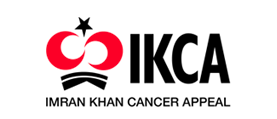Breast Cancer Awareness Month
This Breast Cancer Awareness Month, you can protect yourself against breast cancer by learning more about it.
What are some of the common misconceptions about breast cancer? What are the non-modifiable risk factors?
Breast cancer may be the most commonly diagnosed cancer among women worldwide. But if found early, it is also very treatable. That’s why knowledge is key.
Watch the video from Dr Sumera Butt
We spoke to Dr Sumera Butt, Consultant Clinical Oncologist at Shaukat Khanum Memorial Cancer Hospital. Here, she addresses breast cancer misconceptions and the importance of early detection.
Know about the non-modifiable risk factors
Making positive lifestyle changes can protect us from cancer and other diseases. But Non-modifiable risk factors are those things we cannot change, like our age, ethnicity and genetic background, which can make us more susceptible to certain diseases.
There is nothing you can do to control these risk factors, but there is a great deal you can do to take extra care if you have them. Here are some of the non-modifiable risk factors for breast cancer:
"Making positive lifestyle changes can protect us from cancer and other diseases. But Non-modifiable risk factors are those things we cannot change, like our age, ethnicity and genetic background, which can make us more susceptible to certain diseases."
- A family history of breast cancer (possessing breast cancer-associated genes BRCA 1 and 2)
- Delayed first childbearing (after the age of 30), or no childbearing at all
- A late onset of menopause (after the age of 50)
- An early onset of periods (before the age of 12)
If you are affected by any of the above and haven’t yet started doing regular mammograms, get in touch with your doctor. Getting a mammogram done every year can help early detection.
Learn how to do a breast self examination
A breast self-exam can be a lifesaver. It’s vital for every woman to learn how to do one. But just knowing isn’t enough. Make it a habit to do a self-exam regularly. Particularly if you are affected by any of the non-modifiable risk factors.
Download our free Breast Awareness & Self-exam guide by clicking below.
Improve your lifestyle
Here are some lifestyle changes you can make to better protect yourself from breast cancer.
- Maintain your optimum BMI. Obesity is the root of many potentially fatal health problems including cancer.
- Get regular exercise. Research shows that having high levels of some hormones can increase your risk of cancer. Regular exercise can keep your hormone levels in a healthy balance. Even a brisk walk for 30 mins a day will do you wonders.
- Breastfeed your baby. Breastfeeding has been proven to have a protective effect against breast cancer. Breast is also best for your baby. So, for all the (potential) mothers out there, don’t miss out on this miraculous gift of nature, which can protect you and your baby from disease.
- Eat healthily. Maintaining a balanced diet can reduce your risk of breast cancer. Make sure you have a good intake of antioxidants, vegetables, fruits, whole grains, nuts, green tea, and fish. Also, avoid alcohol consumption and drink lots and lots of water.
- Take extra care with HRT. Some medications used in Hormone Replacement Therapy (HRT) for the management of menopause symptoms can potentially cause breast cancer. Find out about alternatives; avoid them if you can or make sure you have regular medical check-ups and mammograms.
- Quit smoking. Smoking is one of the leading causes of nearly 15 types of cancer, including breast cancer. Quit it before it’s too late and avoid passive smoking where you can.
Want to know more about ways to protect yourself from breast cancer? Click below to read our post ‘Breast Cancer 101’, for a list of things to avoid.
Want to know more about ways to protect yourself from breast cancer? Click below to read our post ‘Breast Cancer 101’, for a list of things to avoid.
